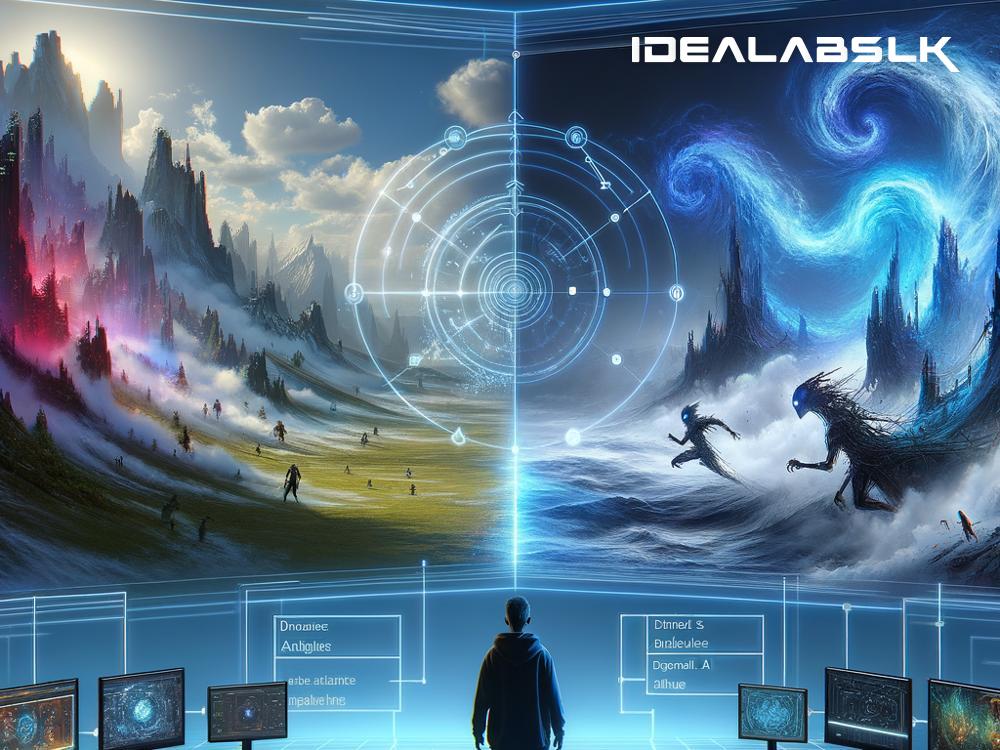Unlocking the Future: How AI Will Transform Game Worlds Through Player Behavior By 2025
Imagine stepping into a game world that morphs and evolves uniquely for you, crafting experiences that perfectly align with your playstyle, interests, and decisions. As we edge closer to 2025, the fusion of gaming with advanced artificial intelligence (AI) technologies promises to make this personalized gaming universe a reality.
The Dawn of AI in Gaming
AI has been part of the gaming industry for decades, primarily powering non-player characters (NPCs) and game environments. However, its role has been relatively basic, focusing on creating challenging opponents or populating worlds with dynamic elements. The real game-changer is the emerging AI technologies capable of deep learning and pattern recognition. These technologies are set to redefine how game worlds respond to and are shaped by each player's behavior.
Crafting Unique Experiences
By 2025, AI will have the ability to analyze a player's interactions within the game in real-time. This means every choice you make, from the paths you prefer to explore to the strategies you employ in combat, will be tracked and evaluated. But why does this matter? Because it enables the game to learn what you enjoy and what you don't, allowing it to adjust aspects of the game to enhance your personal enjoyment.
For instance, if you relish solving intricate puzzles, the AI could dynamically increase the complexity and frequency of puzzles throughout your adventure. Conversely, if you're someone who gets a thrill from high-paced action, the game might spawn more encounters or tweak enemy AI to be more aggressive, ensuring that your adrenaline keeps pumping.
The Power of Personalization
The level of personalization doesn't stop at gameplay mechanics. AI can also tailor game narratives to resonate more deeply with individual players. Imagine a storyline that evolves based on the moral choices you make, characters that remember your past interactions and react accordingly, or even game worlds that transform aesthetically to match your expressed preferences.
Moreover, AI-driven personalization can help in balancing games. For players struggling with certain sections, the AI could offer dynamic assistance or modify difficulty levels on-the-fly, ensuring a smooth and enjoyable gaming experience for everyone, regardless of skill level.
Bridging the Gap Between Developers and Players
One of the most exciting prospects of AI in gaming is its potential to act as a bridge between game developers and the gaming community. Through AI, developers can gain invaluable insights into how players interact with their games, what features are most loved, and where players feel frustrated or disengaged.
This feedback loop, powered by AI analytics, can guide developers in fine-tuning existing content and shaping future developments. It ensures that games stay relevant and continue to evolve in ways that delight and surprise their audience.
Ethical and Privacy Considerations
With great power comes great responsibility. The increased personalization and data analysis bring up important ethical and privacy concerns. How developers handle player data and ensure transparency and consent will be paramount. By 2025, we expect robust privacy frameworks and ethical guidelines to be in place, safeguarding players' data and ensuring that AI enhances the gaming experience without compromising personal privacy.
Conclusion: A New Era of Gaming
As we look to 2025, the integration of AI into gaming is set to usher in a new era of personalized, dynamic, and immersive game worlds. This isn't about creating a one-size-fits-all experience, but rather sculpting a gaming landscape that adapts, learns, and evolves uniquely for every player. It's an ambitious vision, but one that is becoming increasingly achievable with each technological advancement.
In the end, the goal of AI in games isn't just to entertain, but to create deeply personalized experiences that resonate on an individual level, making each player's journey unique. While challenges remain, particularly around ethics and privacy, the potential of AI to revolutionize how we play, experience, and connect with video games is boundless. The future of gaming shines bright on the horizon, promising worlds that are not only played but lived — uniquely shaped by and for each of us.

